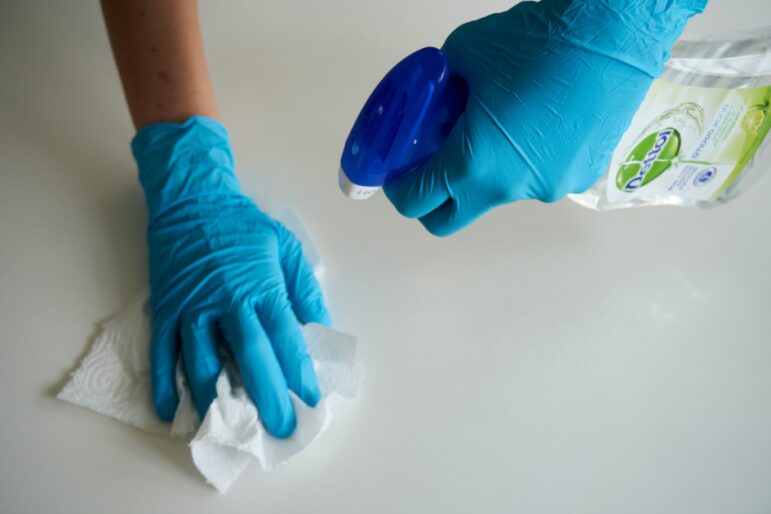It’s allergy season, and that makes it a great time to review your products and practices as part of your spring maintenance to find opportunities to minimize exposure to common allergens.
The most common office allergies are dust, mould, mice, fragrances, and cleaning products, and there are a few ways you can focus on reducing those allergens with your cleaning products and practices.
Dust
Reducing the dust in your space is mostly a maintenance issue that can be addressed by dusting surfaces daily. Washing window treatments, changing your HVAC filters, and cleaning your air ducts will also help keep dust to a minimum.
High-efficiency vacuums with HEPA filters help to get dust and pollutants out of the air, collecting extremely small micron particles that may otherwise be floating around. Don’t forget to stay on top of cleaning your mats, too, as they can trap and hold onto dust and dirt that can get into the air.
Mould
Mould is most often caused by the combination of moisture, oxygen, and a food source like wood, paper, or insulation. Controlling the moisture in your building is the key to keeping mould at bay. Leaks and water damage are the primary sources of mould, so conduct regular inspections of the interior of your building to notice whether you have any issues that need addressing.
RELATED: Why storm season matters for facility maintenance managers
Controlling the humidity levels is another way to avoid mould. According to the Environmental Protection Agency (EPA), optimal humidity for your building is 30 to 50 per cent, so keeping your humidity levels within that range will help you avoid having to address mould in your building.
Mice
While the nights are still cool, rodents tend to seek refuge (and food) indoors. As well, look for signs of mice like damage or droppings to know if they are present and if there is already an issue.
Mice can enter through small holes and cracks, breeding quickly and causing an infestation. Cut down on the chance of mice entering your building by checking for any possible points of entry and sealing those up. As well, keep large entryways like bay doors closed when not in use, and remove any garbage or food promptly that may attract them.
Fragrances and cleaning products
Many common commercial cleaning products – even when labeled ‘healthy’ – contain popular allergens that could make allergy symptoms worse. It can be difficult to look deeply into the ingredients list of many products because there can be ambiguous categories like ‘fragrance’ or ‘preservatives’ that don’t disclose the exact information. Some cleaners also have the added irritant of ‘colour,’ another ingredient that does not disclose its exact makeup.
With cleaners, your best bet is to try and find unscented, natural products with as few questionable ingredients as possible to try and stay away from common allergy irritants.
Allergy season is here, and prioritizing cleaning to limit allergens raises your cleaning standards while providing a more pleasant experience for your visitors and staff.









